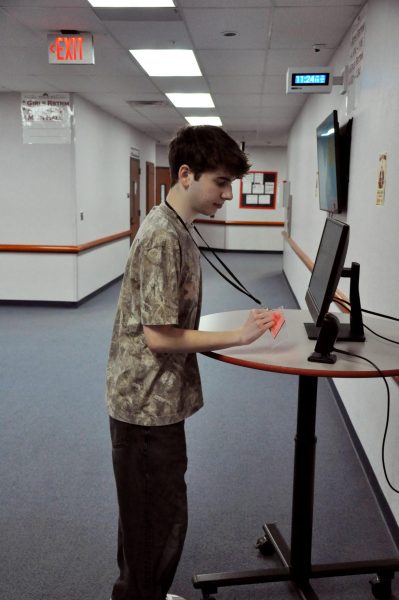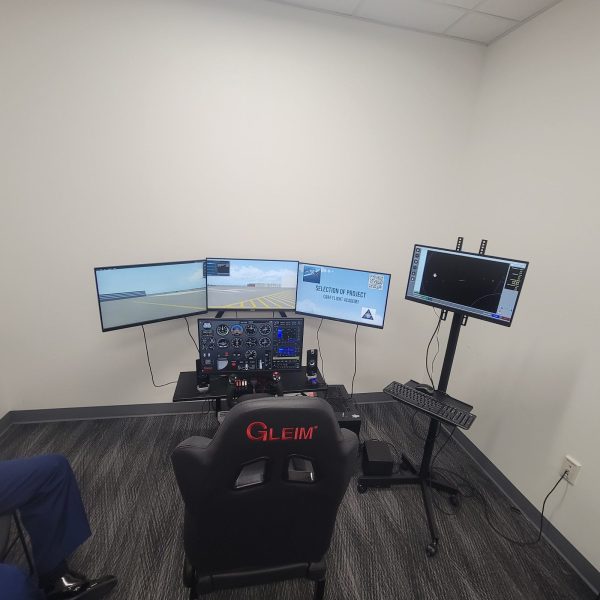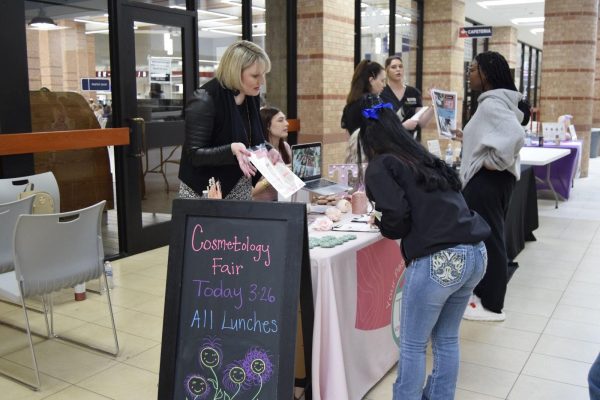Acceptance without exceptions
LGBT History Month offers a time to reflect on the past, present and future of the LGBT+ community at Allen High School
Benjamin Fredrick Clark is no stranger to fighting.
His pen scrawled across the page, excitedly filling in blank after blank. “Soon,” he thought. Soon his name would be legally changed. Ben’s mother ran the document to the courthouse, only to be met with bad news. The court ruled that Ben was too young to have his name changed. Some may see this as the end of the line, but not Ben. He was a fighter. At 16 years of age, Benjamin Clark was faced with challenging Texas state courts on the legality of his name change. He worried for weeks, struggling to convince a court room that what he felt in his heart was valid. He compiled letters from friends and family, as well as from his therapist and psychiatrist. After a lengthy testimony and support from a lawyer, one of their former transgender clients and a gender specialist from Galveston, Ben’s name change was finally accepted as legal.
“It was one of the most relieving moments of my life,” Clark said.
From the establishment of Allen High School in 1910 to present day, the LGBT+ community has been fighting. And though, technically, some sort of equality has been achieved on a national level with Obergefell v. Hodges, they are still fighting. For recognition, for acceptance. For love.
The climate has changed. LGBT+ rights have been a matter of nationwide discourse for decades, coming to a head with recent discussion on transgender bathroom policy. October is LGBT History Month: time to reflect on activists of generations past and to carry their spirit forward into the future.
Past exceptions
Class of 2001 alumni Jessica Schumack says that during her days as a student, Allen was not nearly as welcoming to the LGBT+ community as it is today.
“Hardly anyone felt comfortable coming out at school,” Schumack said. “[Being a part of the LGBT+ community] was still not widely accepted. People would make fun of those who were deemed gay by other students, regardless of whether they denied it or not.”
Schumack said she only knew of one person in her graduating class who came out as being gay.
“My friend didn’t come out until his second year of college,” Schumack said. “He felt unsafe coming out at school because he feared for [his physical safety],”
Since 2001, Allen High School has come to foster a far more accepting environment for members of the LGBT+ community, although not everyone in the community is on board with the changing ideals. Sue Bohlin is an associate speaker and online administrator for Probe Ministries, a Plano-based Christian organization founded to help people think about a large range of topics in a biblical context.
“[Same-sex attraction] is not God’s intent or design for people,” Bohlin said. “Same-sex attractions constitute temptation, not sin, but acting on those attractions is sin—just as acting sexually on opposite-sex attractions outside of marriage is sin.”
Bohlin said she believes that since same-sex relationships are not on a level playing field with opposite-sex relationships, fighting for equality is attempting to normalize something that is neither normal or natural.
“A friend of mine who was in a gay relationship for a number of years calls marriage equality ‘a façade of normalcy,’” Bohlin said. “Now that he’s married to a woman and the father of several children, he is even more convinced that is a correct assessment of the difference between the kinds of relationships.”
In recent months, there has been an increase in debate about whether transgender individuals should be allowed to use their restroom of choice. At Allen, trans students have the option to use the nurse’s restroom as well as the gym restrooms. Bohlin says that this is a good compromise.
“Feelings are real but they are not reliable,” Bohlin said. “We’re talking about feelings that are at odds with the physical evidence of one’s gender. More importantly, it disregards the vast majority of the other people using the restrooms, who should also have rights. Plus it truly opens the door for predators to walk right into girls’ restrooms and put girls in danger.”
Increasing Acceptance
Allen faculty are praised by their transgender students for being extremely open minded and willing to work with students to make sure they feel comfortable and safe. Many faculty members are willing to use a student’s preferred pronouns, as well as call them by a name they prefer. Bohlin feels this is unproductive.
“I don’t think we do anyone any favors by using preferred pronouns because it is cooperating with an elaborate ruse, a game of ‘let’s pretend,’” Bohlin said. “Declaring one is the opposite gender, despite what all the evidence says, how is that different from declaring one is a cat, despite all the evidence saying one is a human?”
Transgender senior Ben Clark disagrees. The day he got his name legally changed completely changed his life.
“We went through it all, and the judge finally said ‘God bless you, I hope you have a good transition, I accept your name change. Your name is officially Benjamin Clark,’” Clark said. “I started sobbing in the courtroom. The positive emotional impact it had on me was really something special.”
Clark says that for the most part, his teachers have been accommodating to him, especially with his pronouns and name. Before his name was changed, he would meet with his teachers privately to explain his situation and request that they use he/him pronouns.
“As a gay trans student, I’ve always felt extremely safe at Allen,” Clark said. “[Teachers] really do make an effort to treat you as you want to be treated. We have a great GSA program. It’s an awesome way to meet people that will love and support you through everything.”
Clark says that any student who is struggling with sexuality or identification should feel free to talk to him or any member of the Gay Straight Alliance (GSA).
“[GSA] is a great community,” Clark said. “You’re with people that are going to care about what you’re going through. For anyone who needs a safe space, GSA is possibly one of the safest places in Allen. It’s set up to be a loving group.”
Senior and GSA President John Pruden says the group is the ideal place to talk about things a student may not feel comfortable talking about in other places.
“There really isn’t another place in the school where you can talk about maybe not feeling 100 percent masculine or 100 percent feminine,” Pruden said. “There aren’t a lot of places where you can talk about questioning your sexuality because it’s high school, and kids are cruel.”
As well as being a place for students to discuss personal issues, there are events to support the LGBT+ community. The events are completely optional, in case students are not out and do not wish to come out publicly.
“For example, the Day of Silence,” Pruden said. “It’s typically seen as a very ‘out’ event, meaning most of the students that participate are out, or at the very least prominent allies.”
For students who have not come out, Pruden says that he remembers being in the closet, and understands that “it sucks.”
“Coming out is not a silver bullet. You don’t just do it once and it’s done forever,” Pruden said. “You’re constantly re-explaining it to people. It gets easier as it goes along, but I don’t think there’s a week at Allen that I don’t tell someone for the first time, ‘Hey, I’m bisexual.’”
Pruden’s advice for LGBT+ students who are worried about the response to coming out is that those who ridicule them are on “the wrong side of history.”
“They aren’t mature enough to comprehend something that they don’t personally feel,” Pruden said. “That’s a skill that develops as time goes on. Empathy is not an inherent trait, especially among teenagers. Wait until you’re comfortable [to come out]. You’re still 100 percent yourself. If you’re not out, you’re still exactly who you are.”

Senior Makayla Nerpel loves wombats, The Packers and Slytherin. She plans to study marketing at A&M Corpus Christi when she graduates.








Bobby Sue • Oct 22, 2016 at 4:03 pm
Great article. Unfortunately, it shows how far we have to go for equal rights for the LGBT+ community, especially in the Allen community.
As to Sue Bohlin’s comments, I’d like to point out that the Souther Poverty Law Center recently designated her organization, Probe Ministries, as a Hate Group:
http://starlocalmedia.com/planocourier/news/southern-poverty-law-center-adds-plano-ministry-to-hate-group/article_92b3388e-057a-11e5-97cb-db34953a4b92.html
Not only are they a hate group, but much of the reason for the classification is because of the writings of Ms. Bohlin. It is sad when someone dedicates their life and career to spreading hateful misconceptions of others.